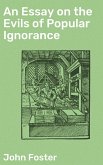In "Thoughts on the Education of Daughters," Mary Wollstonecraft presents a compelling critique of the contemporary education system for women, advocating for a rational and philosophical foundation in their learning. Written in 1787, this seminal work employs a clear, impassioned prose style that reflects Enlightenment ideals while challenging the subjugation of women through inadequate educational practices. Wollstonecraft posits that a well-rounded education is crucial not just for women's personal development but also for their ability to contribute meaningfully to society. Her arguments anticipate later feminist thought, intertwining notions of ethics, self-discipline, and the moral role of women in the family and society at large. Wollstonecraft'Äôs dedication to women'Äôs rights and education was informed by her own experiences as a governess and her observations of the societal limitations imposed on women. As a pioneering figure in feminist philosophy, her works often reflect a deep personal conviction about the benefits of education and rationality. Her life experiences, including her struggles against poverty and the constraints imposed by her gender, shaped her passionate appeal for change. I highly recommend "Thoughts on the Education of Daughters" to anyone interested in early feminist literature or the evolution of educational theory. This text not only sheds light on the historical context of women's education but also challenges readers to reconsider the legacies of inequality that persist today, making it a thought-provoking and essential read.
Dieser Download kann aus rechtlichen Gründen nur mit Rechnungsadresse in A, B, BG, CY, CZ, D, DK, EW, E, FIN, F, GR, H, IRL, I, LT, L, LR, M, NL, PL, P, R, S, SLO, SK ausgeliefert werden.









